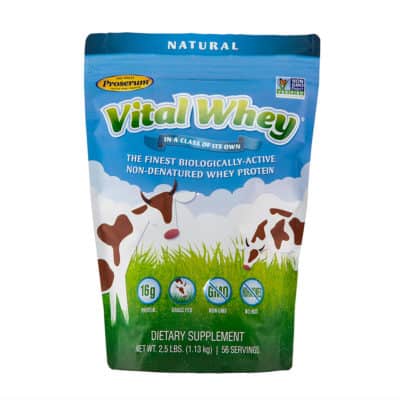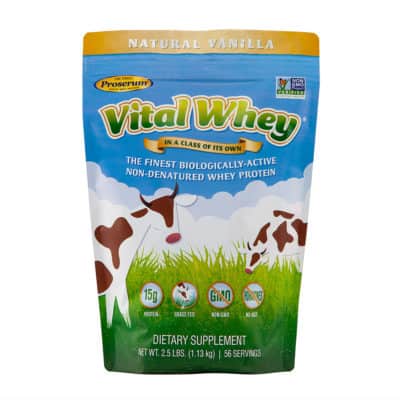
After bariatric or weight loss surgery, your doctor or dietitian will put a major emphasis on getting enough protein in your diet. It’s likely that they will recommend you eat protein at every meal and snack. Protein is of critical importance after surgery to help with wound healing, weight loss and to prevent malnutrition. But, how much protein do you need and which are the best bariatric protein shakes to support your goals?
Why is Protein Important after Surgery?
Protein is the only macronutrient we cannot live without. It is found in every cell of the body and has many important functions. Unlike fat and carbohydrates, which the body is able to store, it cannot store protein. Protein must be consumed daily to meet nutrient needs.
If you have gastric bypass surgery, your stomach will be the size of an egg. If you have gastric sleeve surgery, your stomach will be about the size of a banana. Both types of surgery reduce the amount of food you can consume in one sitting, which helps cut back on calories and promotes weight loss.
Additionally, after surgery there is some malabsorption of food, especially if you have had gastric bypass surgery. This means that even if you are eating enough nutrients, your body will not absorb them properly at first. This is part of the reason why gastric bypass is so successful at helping people lose weight, but it can also result in nutritional deficiencies if the correct post-surgery dietary protocol is not followed.
This means that after surgery every bite of food needs to count and should be loaded with nutrition. Since protein is the most critical macronutrient for all bodily functions, it must be prioritized in a post-bariatric diet. A high quality bariatric protein powder can make it easier to meet your protein needs.
How Much Protein Do You Need?
In the days and weeks after surgery, protein is extremely important since the body is still healing. The protein goal for most patients is between 60-80 grams a day or 1.5 grams/kg of ideal body weight. Your doctor or dietitian will provide you with the amount of protein that is ideal for you.
If protein intake is not adequate, the body will start to breakdown lean muscle to meet its protein needs. This will make maintaining weight loss very difficult in the long run. It will also put you at great risk for malnutrition, which can result in immune and hormonal problems as well as hair and bone loss.
Inadequate protein intake is unfortunately common after bariatric surgery. A 2003 study found that many people struggle with protein intake after gastric bypass. Of the 93 participants in the study, most were consuming between 45-58 grams of protein per day, less than the recommended amount to maintain lean body mass and proper nutrition.
Bariatric Protein Powder Options
In the first few weeks after surgery, you will likely be on a liquid diet as your stomach heals. During this time, most of your calories will come from bariatric protein shakes . Even in the months or years following the surgery, you may still rely on these shakes to meet your nutrient needs.
There are a lot of protein shake options on the market, but you probably want to know the best bariatric protein shake to optimize your success.
The first thing to look at when choosing a protein shake is its protein digestibility corrected amino acid score (PDCAAS). This is a way to evaluate protein quality and ensure you are getting the most absorbable protein available. A score of 100 means the protein is of high quality. The types of protein that meet this criteria are whey, casein, soy and egg white protein.
Next you want to look choose the appropriate type of protein. In general, protein powders are found in two main forms: isolates or concentrates.
Protein isolates have a higher concentration of protein per volume. These are highly processed protein products where the lactose and fat has been removed. A protein isolate is beneficial for people who are lactose intolerant or are having trouble tolerating protein after surgery. A protein isolate may be more appropriate for someone who just had bariatric surgery and is still not on a solid diet.
Protein concentrates have a lower amount of protein per volume. The percentage of protein will vary based on the specific product. They may contain more fat and lactose, but they usually taste better than isolates for that reason. A protein concentrate may be appropriate for someone who is a few months out of bariatric surgery and has reached the maintenance state of their diet.
Recommended Products to take after Bariatric Surgery
- Persistent Tiredness and Chronic Fatigue: Causes and Symptoms - February 27, 2024
- Can A Protein Shake Replace A Breakfast Meal? - March 2, 2023
- Glutamine After Surgery: Does It Help With Recovery? - February 17, 2023








It’s made be the best. But I don’t have that kind of money for a 2.5lb.